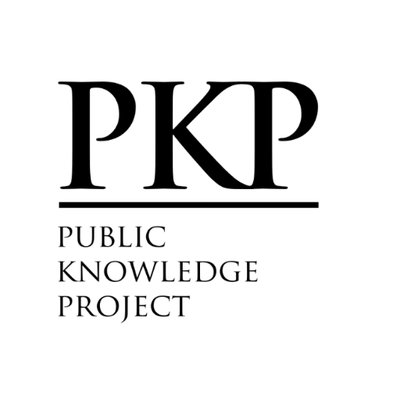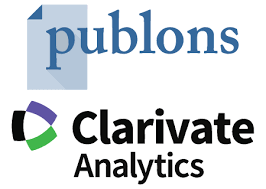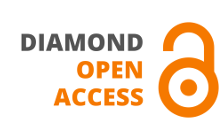The microcredit offering activity of Microfinance Institutions in a post-covid context
revelations of stakeholders' speeches and involvement for social impact
DOI:
https://doi.org/10.59051/joaf.v15i3.691Keywords:
Microcredit, Individual credit, Microfinance institution, Solidarity credit, Stakeholders.Abstract
Objective: This article aims to understand the perception that stakeholders have of the microcredit supply policy of Microfinance Institutions (MFI) in a developing country.
Method: The data from the empirical study are collected through semi-structured interviews with two categories of MFI stakeholders, namely clients and managers. The interviews, which take place between November 2022 and March 2023, take place in the cities of Yaoundé and Douala in Cameroon.
Results: The content analysis of the speeches reveals that the relevance of the problems posed by the clientele is deconstructed by the Managers of the MFI. The study assumes that this deconstruction, understood as a veiled form of resistance to change, constitutes a major obstacle to the achievement of the original social mission of MFI in the experimental area of the study.
Originality: Most of the work on MFI in the African context and in Cameroon in particular deals with social performance without really taking into account the perception of stakeholders. The originality in this research comes from the fact that, we have adopted an inductive approach to understand the perception of MFI stakeholders in terms of social scope.
Downloads
References
Attali J. (2014), « Les nouveaux visages de la microfinance en Afrique », Revue d’Economie Financière, numéro 116, P.243-258.
Bengono Bimeme I. (2023), « Contrôle de gestion et pérennité des Institutions de Microfinance en Afrique subsaharienne », Revue Management et Innovation, Numéro 7, P.140-165.
Biloa T. M., Siewe Pougoue E. B., Nlom, J. H., Baida A. L. ET Ibrahim (2022), « Déterminants de la performance financière et sociale des Institutions de Microfinance au Cameroun », Journal of Academic Finance, Vol. 13, N° 2, P.96-120.
Bourguignon A. (1998), « Représentations de la performance : le contrôle de gestion ne suffit pas », Congrès Performance et Comptabilité, p. 537–553.
Burlacu R., Girerd-Potin I., Dupré D. (2004), « Y-a-t-il un sacrifice à être éthique ? Une étude de performance des fonds socialement responsables américains », Banque et Marchés, vol. 69, mars-avril.
CNEF (2021), Rapport sur la gestion des performances sociales dans les établissements de microfinance au Cameroun, 44 pages.
Creusot A. C. (2006), « L’état des lieux de la micro finance au Cameroun », BIM, n°-09, Mai.
Crozier M. (1991), L’entreprise à l’écoute, Inter Éditions, Paris.
Dumez H. (2016), Méthodologie de la recherche qualitative : Les questions clés de la démarche compréhensive, Vuibert.
Dupré D., Girerd-Potin I., Jimenez-Garces S., Louvet P. (2006), « Les investisseurs paient pour l’éthique. Conviction ou prudence ? », Banque et Marchés, N°84, Septembre-Octobre, pp. 45-59.
Freeman R. E. (1984), Strategic Management: A stakeholder Approach, Pitman.
Girod-Seville M., ET Perret V. (1999), « Fondements épistémologiques de la recherche », In R-A. Thiétart (Coord.), Méthodes de Recherche en Management, Dunod.
Guerin I. ET Servet J-M., (2005), « L’économie solidaire entre le local et le global : l’exemple de la microfinance », Revue internationale de l’économie sociale, Numéro 296, P.83-99.
Guilmot N. & Vas A. (2013), « La nature paradoxale du travail des cadres intermédiaires en contexte de changement organisationnel », Question(s) de Management, Vol.2, n°3, pp.53-65.
Kamdem E., (2002), Management et interculturalité en Afrique. Expérience camerounaise, Harmattan/Presse de l’Université de Laval, Paris/Laval.
Labie M. (2007), « Réflexions préliminaires pour une approche éthique de la gestion des organisations en microfinance », Éthique et économique/Ethics and Economics, 5(1), 1–8.
Lelart M. (2008), « Proximité et risque dans la microfinance », Revue Gestion 2000, n°5, P.37-46.
Mayoukou C. ET Kertous M. (2015), « L'accès au crédit individuel par les clients des institutions de microfinance du Congo : une analyse des déterminants de l'auto-exclusion et de l'obtention du prêt », Mondes en Développement, numéro 169, P.121-138.
Mbouombouo Mfossa P-H., Mvogo G., Ndzana M. (2015), « Performance sociale versus performance financière : quel objectif pour les microfinances camerounaises ? », 5ème Journées Internationales de la Microfinance “Mutations et crises de la microfinance”, Douala, Cameroun.
Messomo Ellé S. (2017), « Microcrédits et performance financière et sociale des institutions de microfinance », Revue Gestion et Organisation, P.79-91.
Messomo Ellé S. (2021), « Caractéristiques des produits de microcrédit et performance financière des institutions de micro finance (IMFs) au Cameroun », Recherches en Sciences de Gestion, Vol.2, numéro 143, P.143-170.
Miles M. B. ET Huberman A. M., (2005), Analyse des données qualitatives, 2e édition, Bruxelles, De Boeck.
Sangare M. (2011), « Le financement des Institutions de Microfinance (IMF) : contraintes et liens avec la qualité de service aux clients. Une étude cas au Mali », Revue des Sciences de Gestion, Vol.3, n°249-250, P.157-162.
Simonet M-A. (2011), « Conquête et fidélisation des clients dans les établissements de microfinance au Cameroun : cas des mc2 à l'ouest Cameroun », La Revue des Sciences de Gestion », 2011/3 n°249-250, pages 113 à 120.
Nzongang J. ET Takoudjou Nimpa A. (2020), « L’impact sociétal des Institutions de Microfinance (IMF) : le cas du modèle MC2 du Cameroun », Africa Positive Impact, P.334-343.
Roy D. (2006), « La participation et l’appropriation dans l’utilisation de la microfinance comme outil de développement », www.poissant.uqam.ca.
Stiglitz J. & Weiss A., (1981), «Credit Rationing in Market with Imperfect Information », The American Economic Review, 71 (3), pp.393-410.
Tchingnabe D., Abba Pattou, M. et Mahamat Abouna Adam (2022), « Satisfaction et fidélité de la clientèle des EMF à l’égard de l’offre de microcrédit », Revue Africaine de Management, Vol.8 (2), P.230-299.
Vas A. (2009), « Challenging Resistance to change from the Top to the Shop floor level: An Exploratory Study », International Journal of Strategic Change Management, Vol.1, n°3, pp.253-298.
Wamba H. (2001), « La gestion bancaire en Afrique Centrale à l’heure des grandes mutations : bilan et perspective », Gestion 2000, 18 (6).
Published
How to Cite
Issue
Section
License
Copyright (c) 2023 Jean Roger Mfelam, DOKO EDJIANE Mathieu Alain

This work is licensed under a Creative Commons Attribution-NonCommercial-NoDerivatives 4.0 International License.
Authors who publish with this journal agree to the following terms:
- Authors retain copyright and grant the journal right of first publication with the work simultaneously licensed under a Creative Commons Attribution License that allows others to share the work with an acknowledgement of the work's authorship and initial publication in this journal.
- Authors are able to enter into separate, additional contractual arrangements for the non-exclusive distribution of the journal's published version of the work (e.g., post it to an institutional repository or publish it in a book), with an acknowledgement of its initial publication in this journal.
- Authors are permitted and encouraged to post their work online (e.g., in institutional repositories or on their website) prior to and during the submission process, as it can lead to productive exchanges, as well as earlier and greater citation of published work (See The Effect of Open Access).























